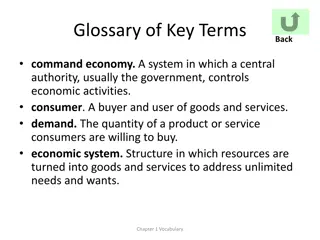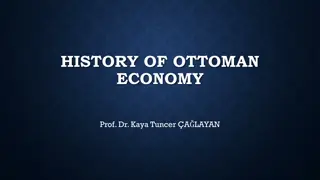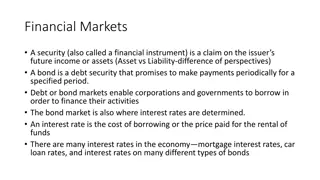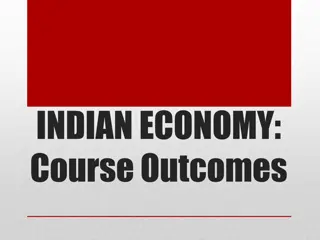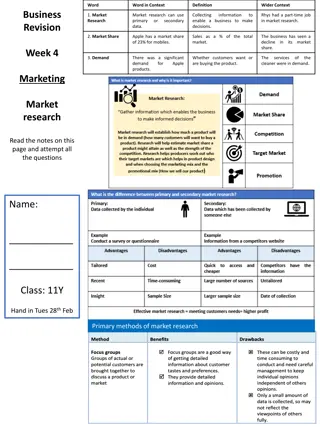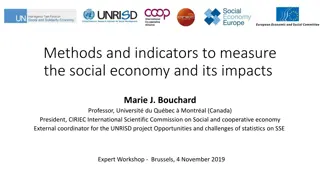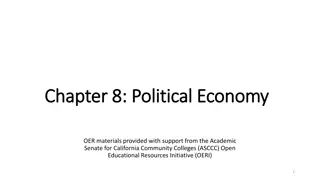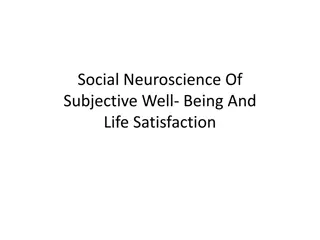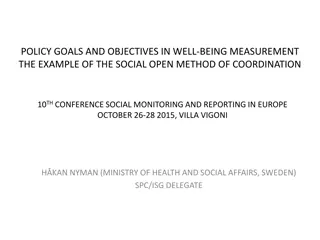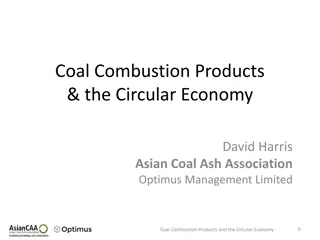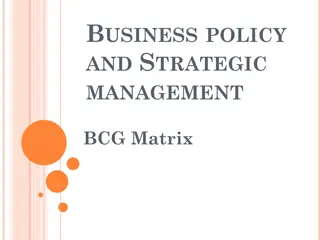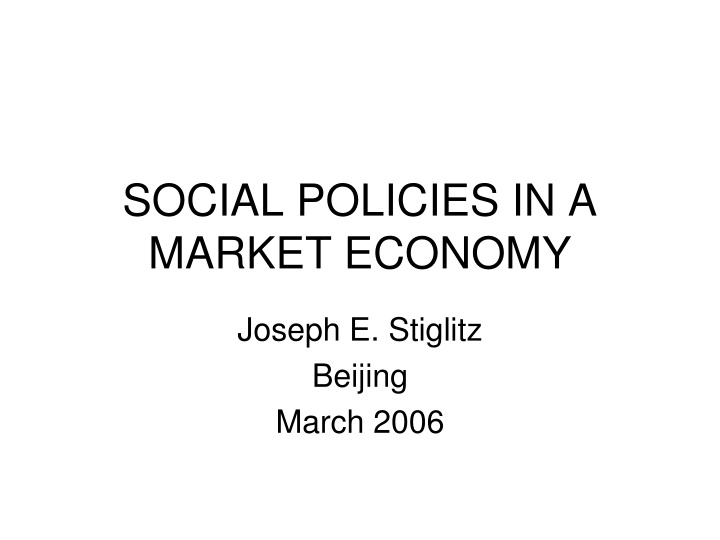
Social Policies in a Market Economy
Explore the objectives of social policies in a market economy, including redistribution, enhancing opportunities, and social protections. Learn about the importance of full employment and the trade-offs between inflation and unemployment. Delve into the complexities of unemployment benefits and their impact on the job market.
Download Presentation

Please find below an Image/Link to download the presentation.
The content on the website is provided AS IS for your information and personal use only. It may not be sold, licensed, or shared on other websites without obtaining consent from the author. If you encounter any issues during the download, it is possible that the publisher has removed the file from their server.
You are allowed to download the files provided on this website for personal or commercial use, subject to the condition that they are used lawfully. All files are the property of their respective owners.
The content on the website is provided AS IS for your information and personal use only. It may not be sold, licensed, or shared on other websites without obtaining consent from the author.
E N D
Presentation Transcript
SOCIAL POLICIES IN A MARKET ECONOMY Joseph E. Stiglitz Beijing March 2006
Objectives of Social Policies Redistribution Enhancing opportunity Access to education Access to finance Partially reflections of market failure Improving Outcomes Even if market is efficient, it may not lead to socially acceptable distribution of income
Objectives Social Protection Market failures absence of insurance to cover major risks Huge loss of welfare Lack of security cited as major problem Problems in insurance risks: Unemployment, annuities, disability, insurance against inflation Explained in part by theories of asymmetric information But government has sometimes acted as a catalyst Basic human needs Education Food Social obligation (specific egalitarianism)
Full Employment Most important social policy Unemployment represents waste of resources But also leads to adverse social consequences Market economies do not automatically lead to full employment And excessive focus on inflation can lead to higher unemployment than necessary
Trade-offs Inflation vs. unemployment Little evidence that moderate to low inflation has any effect on growth Social programs can insure poor against inflation (indexing social security, etc.) Continuing debate about broader distributive effects of inflation With many studies claiming inflation cruelest tax flawed in identifying source of problem (oil price shock) Well functioning markets have unskilled wages adjust fairly quickly
Trade-offs Do unemployment benefits lead to higher unemployment, because of reduced incentives to search? If there is a lack of jobs, more search does not produce more employment (search externality just increases expenditures on search) But in Efficiency Wage (Shirking Shapiro/Stiglitz) models higher unemployment benefits can result in higher equilibrium unemployment But increased job security has more ambiguous effects on unemployment What is clear is that markets by themselves do not necessarily result in optimal levels of severance pay and unemployment insurance (private markets typically provide little)
Thinking about Redistribution Neoclassical dichotomy can separate efficiency concerns from distributional concerns Today, we recognize that such separation is not possible (if there are imperfections or asymmetries of information, incomplete markets) Social policies/concerns need to be integrated into all government programs Assessing who benefits Though often incidence is a complicated matter
Redistribution Government needs to think of impact of policies on pre- tax distribution of income (not just adjustments to given after tax income distribution) China today is in a markedly different position from many market economies Who are worried about deficiencies in savings/investment And hence have been pushing for low taxation of capital In spite of adverse effects on distribution of income In spite of limited evidence on the impact of such incentives on savings Tax preferences may actually lower net national savings
China today is trying to encourage consumption So can employ progressive capital taxes China is also in a different position from other developing countries Traditional debates focused on need to extract surplus from rural sector China needs to increase well-being of those in rural sector But guard against problem in U.S.,EU, where agriculture subsidies mainly go to large, corporate farmers huge distortion of resources and increase in inequity
Opportunities Unequal access to opportunities Education, finance affected by parental wealth Lowering social mobility Horatio Alger mainly myth But also discrimination discriminatory market equilibrium Gender, race Becker was wrong Impossible to undo fully Affected by differences in quality of public schools Location/geographic, network externalities
Opportunities Huge societal costs of unequal opportunity Efficiency not drawing fully on most important factor labor Undermining Social Cohesion Huge costs of exclusion Manifested in anti-social behavior But government can make a difference Affirmative action programs Directed expenditure programs Promoting wider access to credit
Social Protection Huge costs to insecurity Widespread market failure Especially associated with adverse selection Market efforts directed at cream skimming At enormous economic and societal costs Helps explain huge transactions cost Help explain problems in private health insurance market
Public sector has to be worried about moral hazard (incentives) But an integrated social insurance system (Singapore s provident fund) can mitigate risk and minimize attenuation of incentive Key question: how much inequality in, say, access to health/medicine should society accept? Vexing question, especially in societies marked with high levels of inequality in other ways Probably need to accept basic level of health care, publicly provided (financed) With high income purchasing additional services Good news access to medicine only one of determinants of health Government should work on other dimensions (nutrition, smoking, drinking) as well
Chinas Transition to a Market Economy As China makes a transition to a market economy, it needs to be aware of the limitations of markets in providing basic levels of social protection There is an important role of government Which virtually every market economy has recognized China should learn from the mistakes the successes and failures of others in designing its social programs But the strains imposed by China s extremely rapid growth make it all the more important for its government to assume an important role
Chinas Transition to a Market Economy China s decisions will affect not only the performance of the economy Well designed social programs can even increase productivity Making sure that all of the country s talents are given the opportunity to reach their potential Correcting, or mitigating, market failures And with a well-designed safety net, individuals may be freer to take risks than they otherwise, encouraging innovation (the Scandinavian model) But the nature of Chinese society itself

